
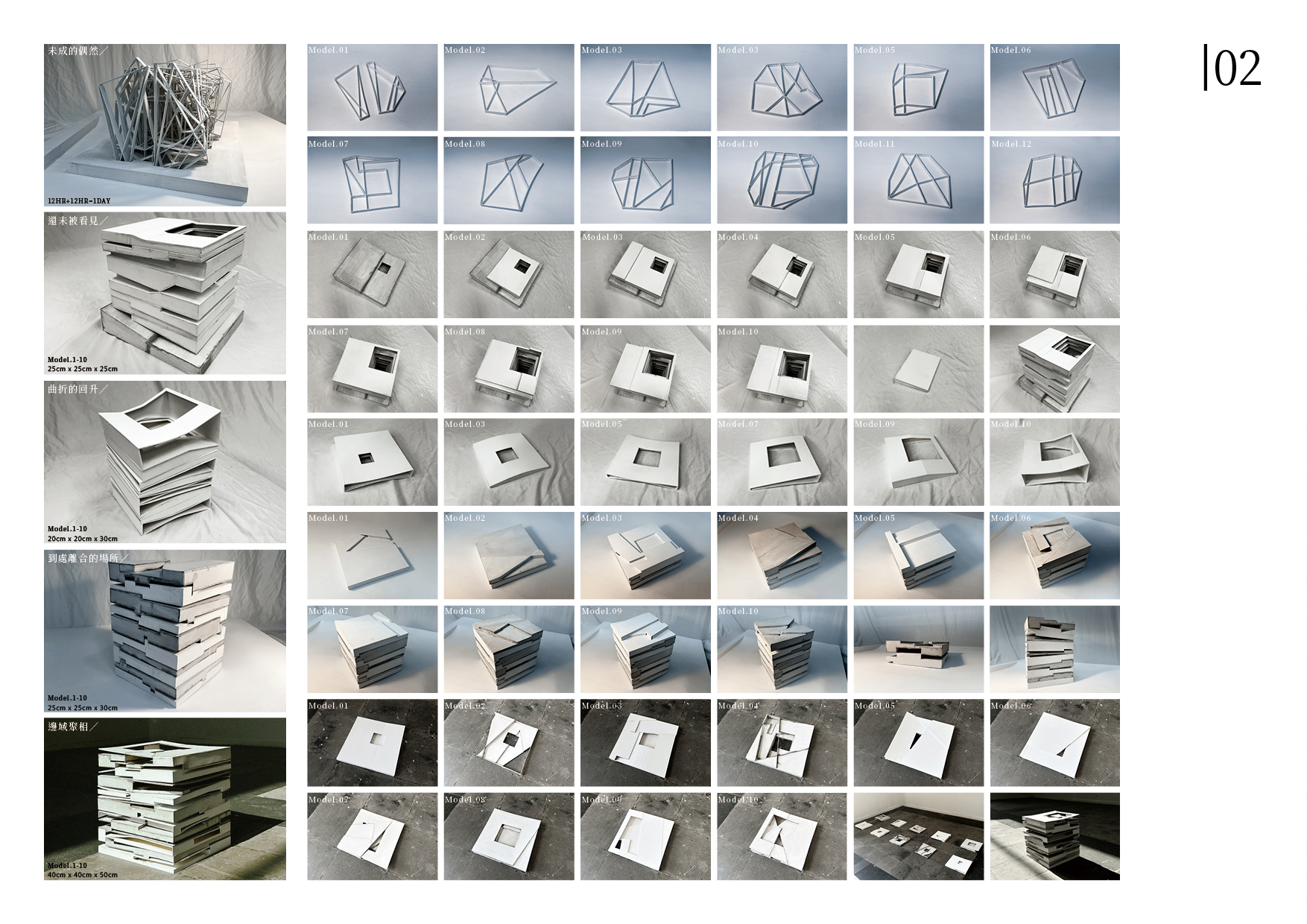
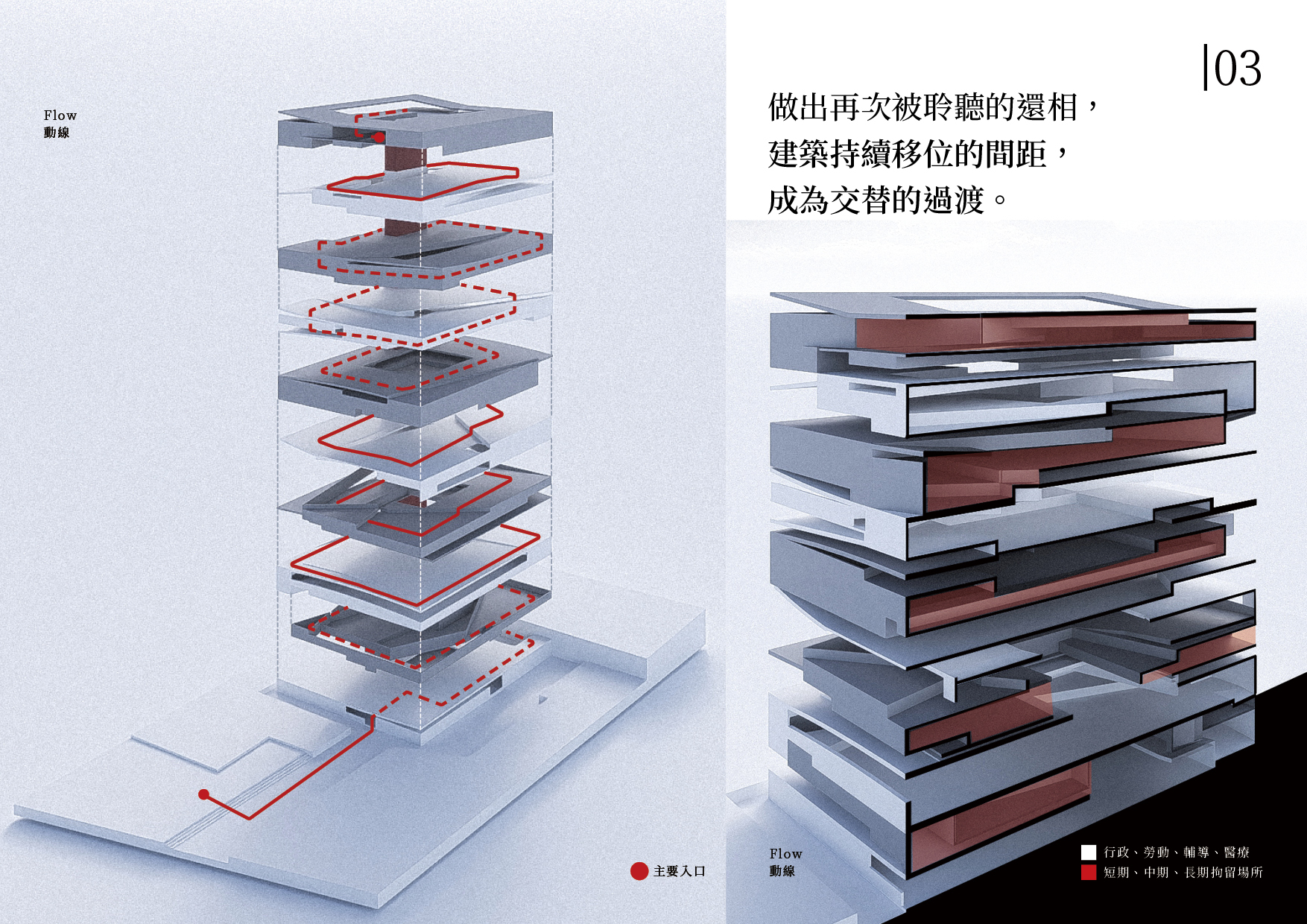
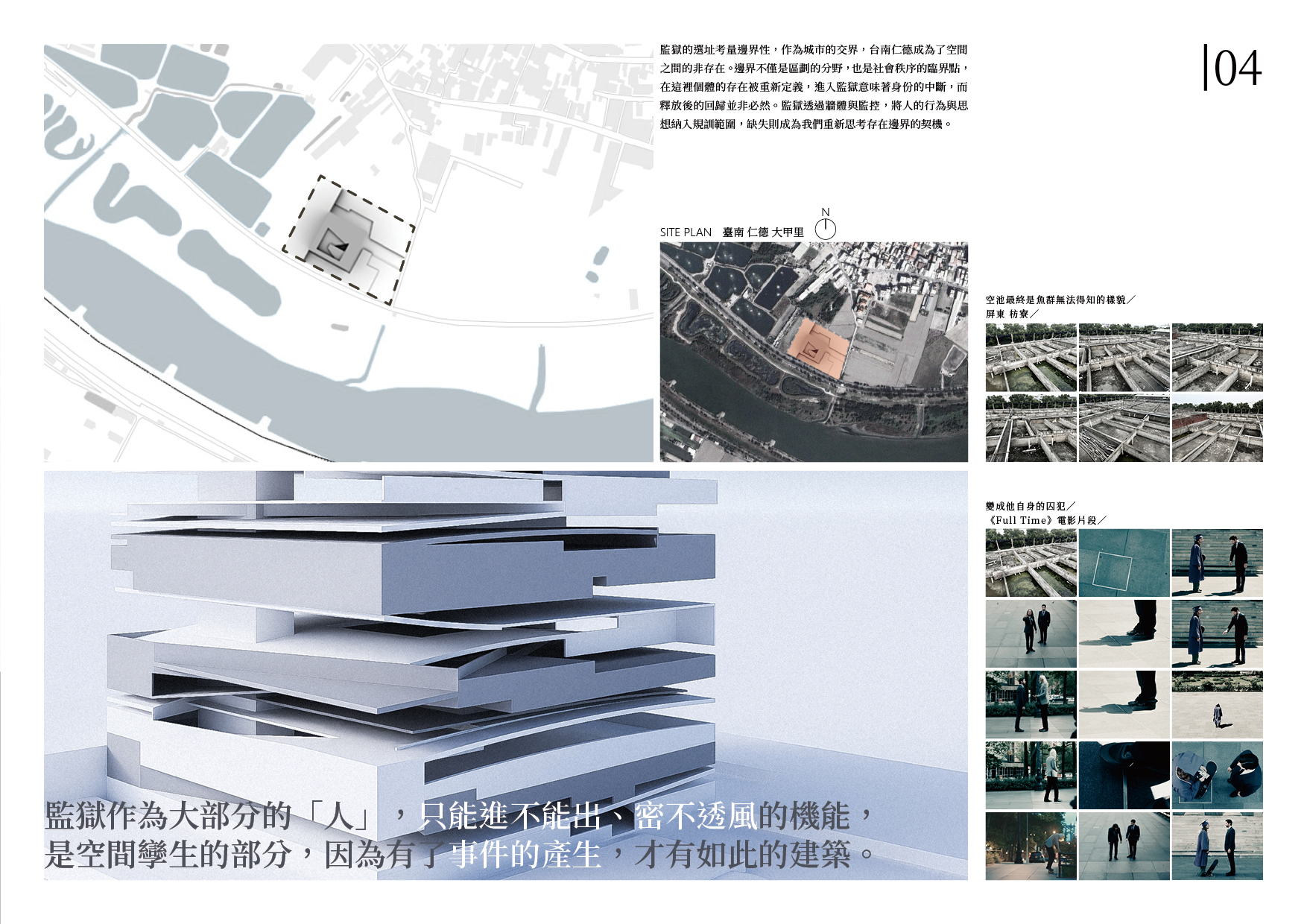
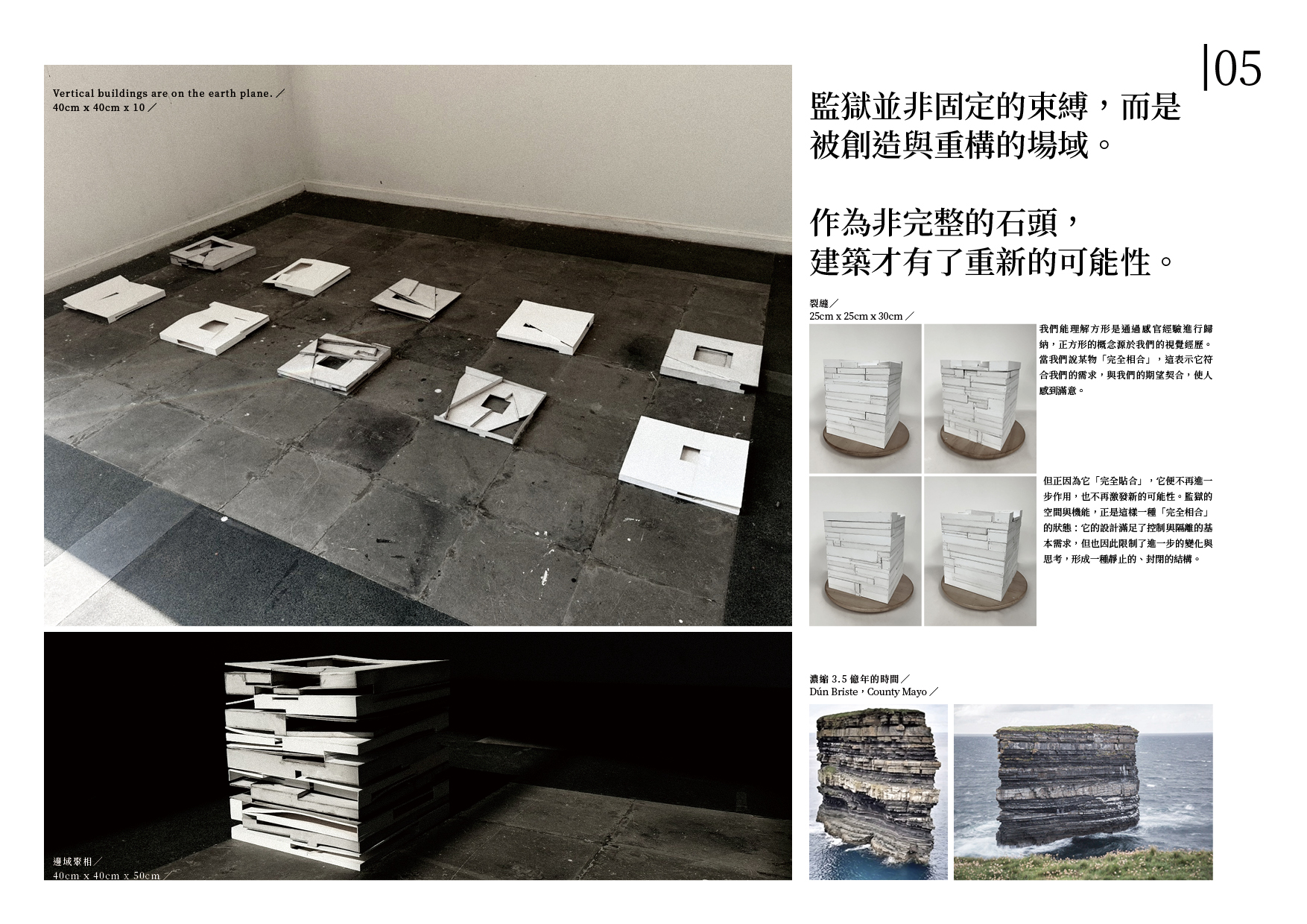
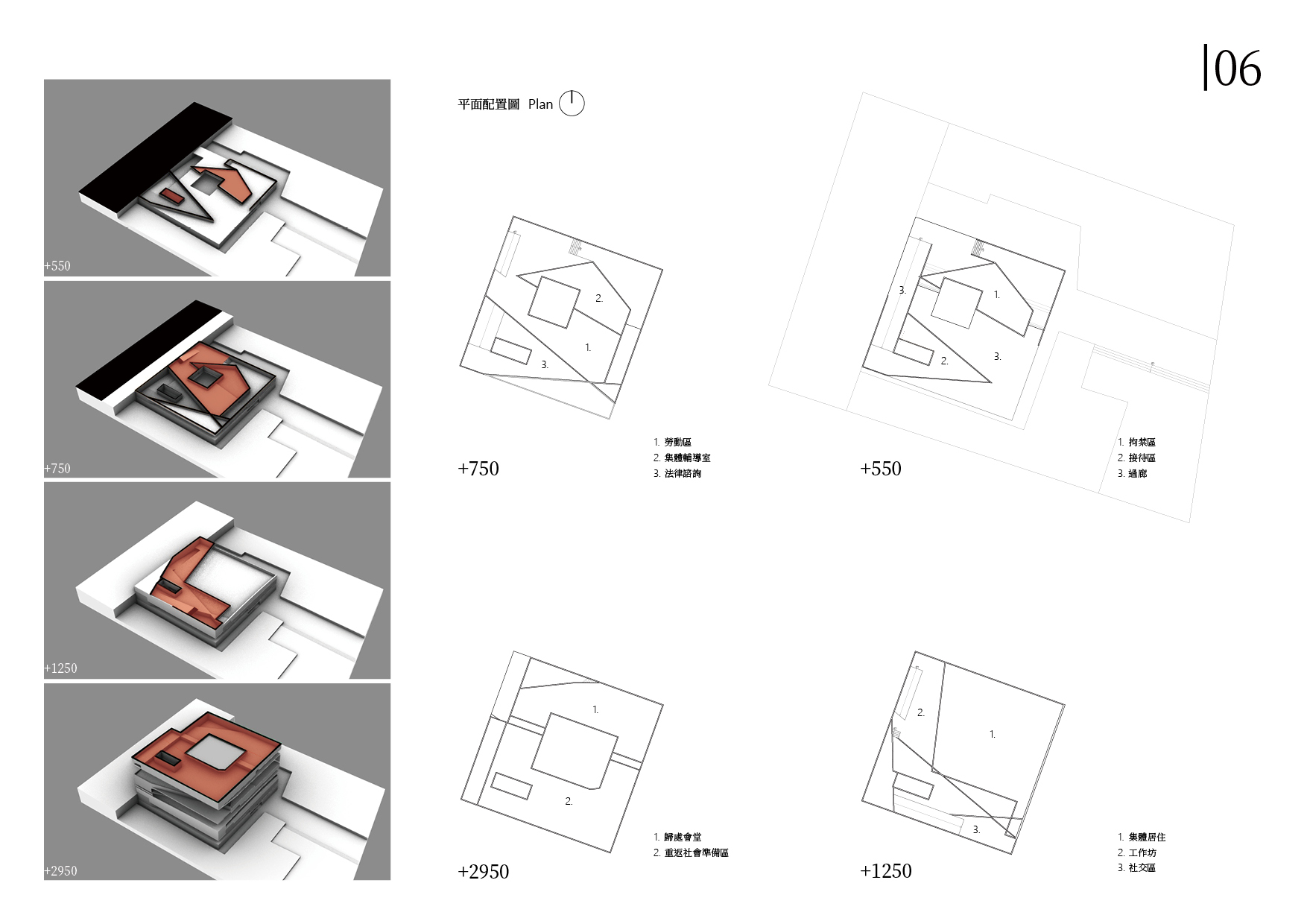
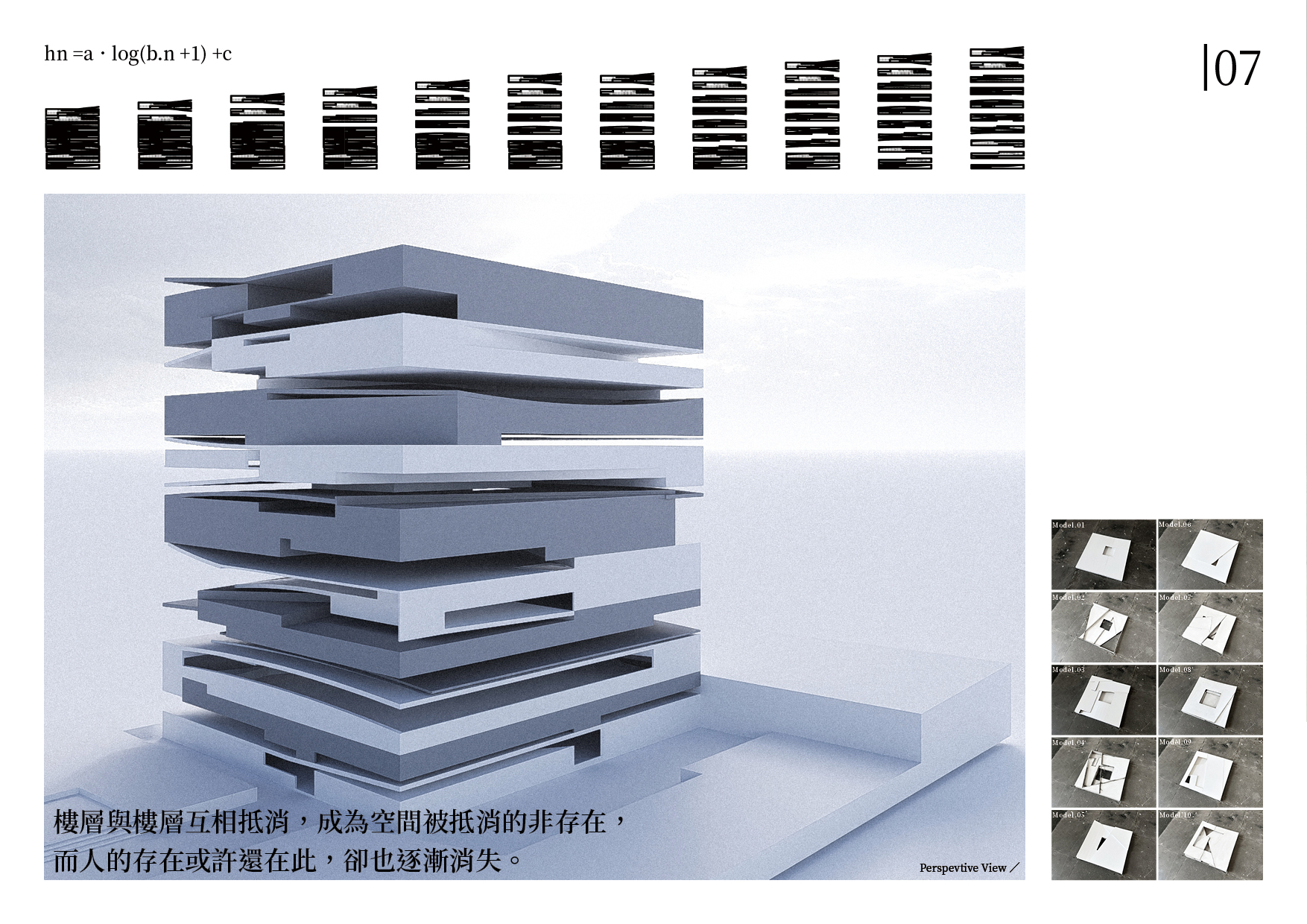
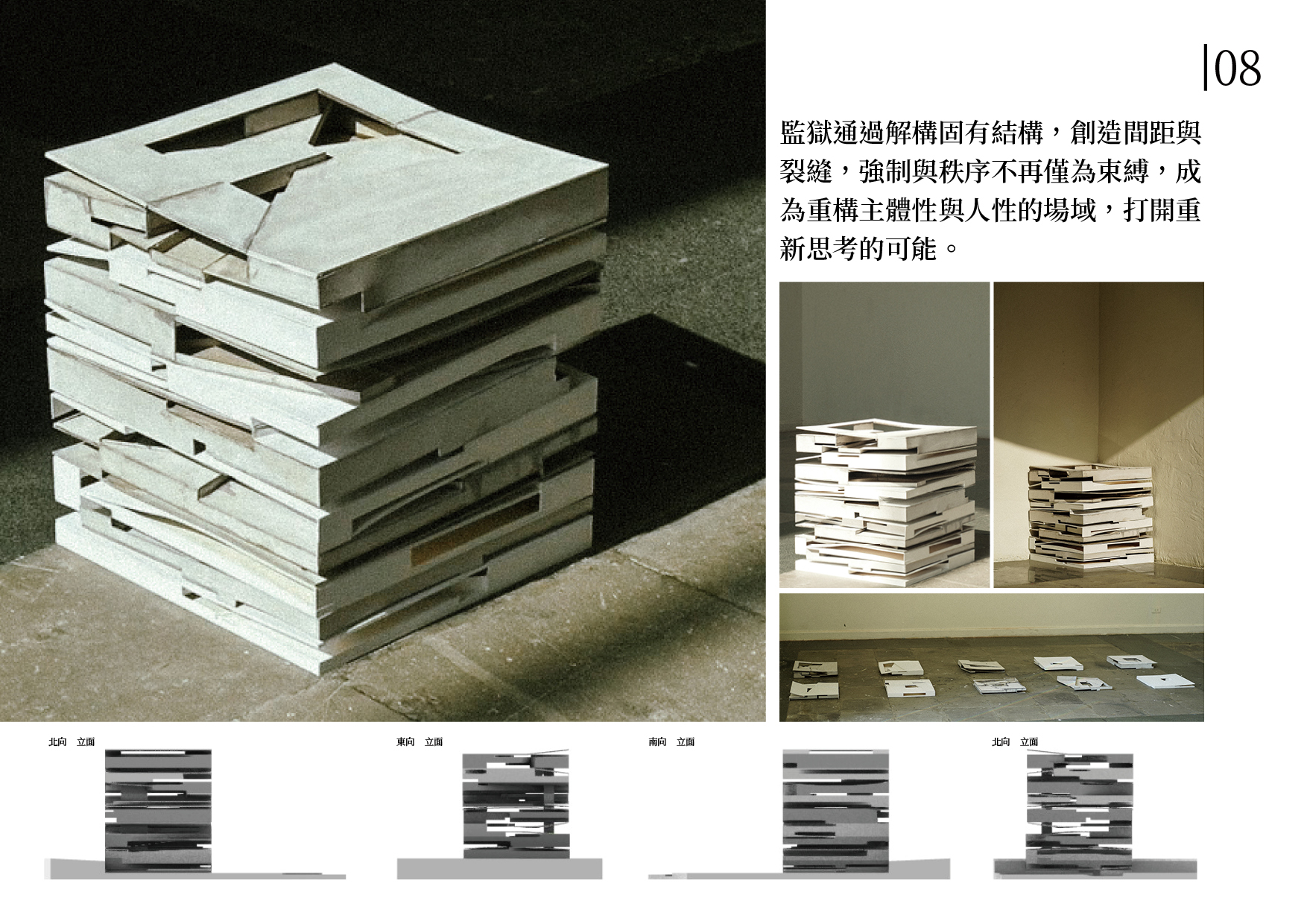
在這裡,建築內部作為真相的場域,表現出事件流動的「過程性」,其中人既在其中存在,也可能在秩序的規範下消融。監獄是這一現象的極端呈現,它不僅限制個體的行為,也深刻塑造個體的意識。在封閉的牆面和壓迫的空間中,身體被壓縮,但思想卻在這個限制中生成或逐漸消散,形成一種強烈的張力。作為事件的孿生體,監獄通過隔離與衍生,反映出「自我」思考的邊界,並辯證存在的本質。
監獄的邊界性成為重要的考量,台南仁德,正位於城市的交界處,成為空間之間的非存在。這裡的邊界不僅是物理的分界線,更是社會秩序的臨界點,是「在場」與「不在場」的交匯。在此,進入監獄不僅意味著身份的中斷,釋放後的回歸亦非必然。監獄以其牆體、監控與規訓系統,將個體的行為與思想納入規訓範疇,它既是身體的禁錮,也是思想的圍困。這種壓迫感既限制了個體的外在行為,也催生出內在的反思與裂縫。
然而,監獄的存在並非僅僅是對行為的束縛,它同時構建了一個重新思考存在與自由的契機。在這個極端的場域,監獄不僅是對社會秩序的展演,它也在反思人類對「自我」的理解。監獄的邊界,使我們不得不重新審視「自我」的流動性與有限性,從而質疑自由與束縛的辯證關係。作為一個大部分人認為極端的存在場域,進行對當代人類存在、自由及身份的反思。
Here, the interior of the building serves as a field of truth, manifesting the 'processual' nature of the flow of events, in which the human being both exists and can dissolve under the constraints of order. Prison is the extreme manifestation of this phenomenon, which not only restricts an individual's behavior, but also profoundly shapes his or her consciousness. In the closed walls and oppressive space, the body is compressed, but the mind is created or gradually dissipated within this confinement, creating a strong tension. As a symbiosis of events, prison reflects the boundaries of “self” thinking and debates the nature of existence through isolation and derivation.
The boundary of the prison becomes an important consideration. Tainan Rende, located at the junction of the city, becomes a non-existence between spaces. The border here is not only a physical demarcation line, but also a critical point of social order, the intersection of “presence” and “absence. Here, entering the prison does not only mean the interruption of identity, but also the return after release is not inevitable. With its walls, surveillance and disciplinary system, prison puts the individual's behavior and thoughts into the realm of discipline, which is not only a confinement of the body but also a siege of the mind. This sense of oppression not only restricts an individual's external behavior, but also gives rise to internal reflection and cracks.
However, the existence of prison is not merely a fetter on behavior, but also constitutes an opportunity to rethink existence and freedom. In this extreme space, prison is not only an exhibition of social order, but also a reflection on the human understanding of “self”. The boundary of prison compels us to re-examine the fluidity and finiteness of the “self,” thus questioning the dialectical relationship between freedom and bondage. As a field of existence that most people consider extreme, it is a reflection on contemporary human existence, freedom and identity.